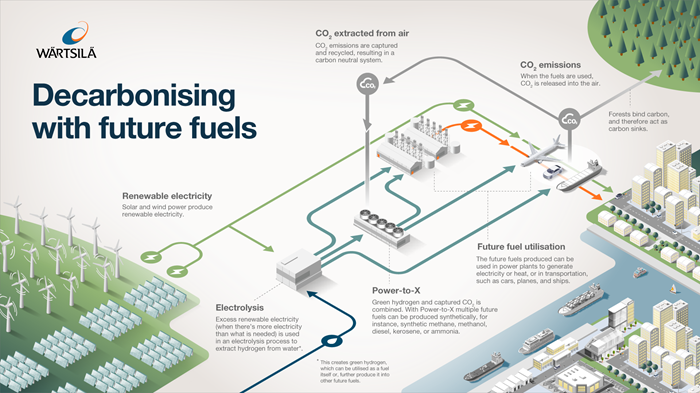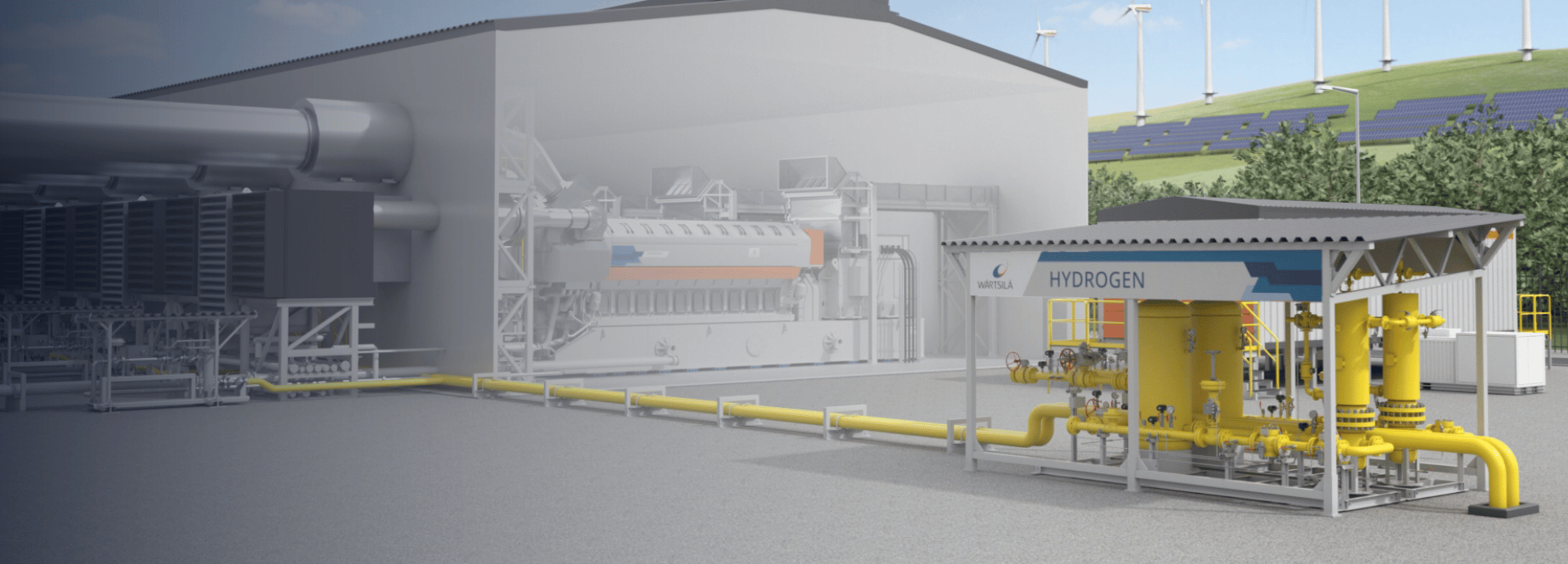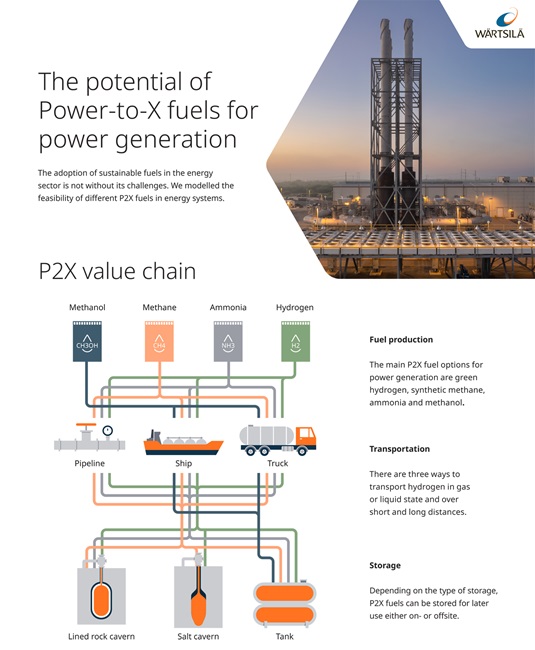

Decarbonising with sustainable fuels
The urgent need to take action to decarbonise and reduce the global carbon footprint is seen globally. Countries, regions, significant industrial players and companies are setting renewable energy or decarbonisation targets.
To fully overcome renewable intermittency, energy systems must employ all available flexibility solutions, from energy storage which discharges over a period of hours – to thermal balancing using sustainable fuels, which can be transported and stored over many months.
The influx of renewables entering power systems is creating the right conditions for excess clean electricity to be used as a raw material for new types of hydrogen-based, carbon neutral sustainable fuels.
Together with flexible power plants, sustainable fuels can meet the critical demand for long-term storage solutions that balance grids in an affordable and sustainable way.
Hydrogen – a sustainable fuel for the future
Hydrogen will play a major role in developing sustainable fuels and provides a variety of possibilities. Pure hydrogen can be used as a fuel in the future to help mitigate climate change, however, it requires investment in new infrastructure. Green hydrogen can also act as raw material for producing other renewable synthetic fuels, such as methane or methanol, while utilising existing infrastructure.
Wärtsilä is researching various sustainable fuels in order to provide customers with future-proof solutions to support the transition towards a 100% renewable energy future and helping decarbonise the planet.
All our gas engines are already capable of combusting synthetic carbon-neutral methane and up to 25% vol. hydrogen blend with natural gas. In addition, we have recently launched the world's first large-scale 100% hydrogen engine power plant solutions. The first products brought to the market will be the 100% hydrogen-ready natural gas engine and the pure hydrogen engine.
World's first - Wärtsilä unmodified gas engine runs on 25% hydrogen blend in a commercially operated power plant
"This class of engines can maintain higher efficiency compared to simple-cycle gas turbines while co-firing hydrogen." - The EPRI case report
Read more here: Case WEC Energy Group
Learn more about sustainable fuels
Sustainable fuels white paper
Wärtsilä's continuous research on future fuels and engine technology will ensure reliable power generation with a wide range of sustainable fuels. To meet decarbonisation goals and limit the impacts of climate change, explore the various options to reach 100% renewable power generation in future.
Power-to-X fuels white paper
P2X fuels will play a key role in the decarbonisation of the energy sector. In the power sector these fuels will prove essential to meet the seasonal and balancing requirements of the grid. Read more about our analysis how the complete value chain of the P2X fuels impacts the choice of the optimal fuel.
The potential of Power-to-X fuels for power generation
Power-to-X is a process which allows the creation of carbon neutral, renewable future fuels. By capturing CO₂ from the air and combining it with green hydrogen, multiple different carbon-neutral future fuels can be created.
In the future, fossil fuels will be replaced by these future fuels as they lower the impact on the climate. Power-to-X can accelerate decarbonisation in industries, transportation and the energy sector.
Today, the extraction of fossil fuels used in various applications is accompanied by continuous increase in release of CO₂ into the atmosphere.
When existing CO₂ in the air is reused as a raw material for synthetic fuel production and other processes – there are no new CO₂ emissions. Circular carbon economy ensures CO₂ balance by recycling CO₂ emissions and utilisation non-fossil alternatives with a support of e.g. forests acting as carbon sinks.

Click to view the image in full size.
Press releases
World-first engine test to convert sugarcane into clean power
Wärtsilä launches world’s first large-scale 100% hydrogen-ready engine power plant
Wärtsilä study examines the potential of Power-to-X fuels for power generation






